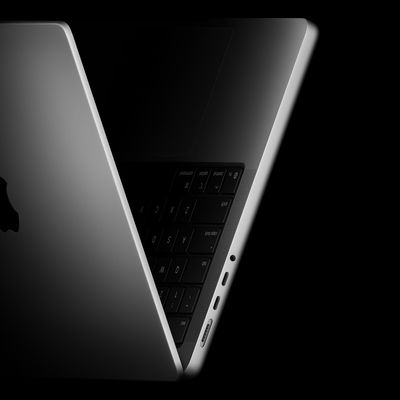Apple Plans to Appeal $439M 'Final Judgment' in FaceTime Patent Lawsuit With VirnetX
VirnetX today announced that the United States District Court for the Eastern District of Texas has denied all of Apple's motions in a longstanding FaceTime-related patent lawsuit between the two companies.

The court also granted all of VirnetX's motions in the retrial and increased the royalty rates that Apple owes during the infringement period, resulting in a revised final judgment amount of $439.7 million.
"We are elated with the Court's Final Judgement of $439 million in that not only did it affirm the jury's verdict of $1.20 per infringing iPhone, iPad and Mac Product, but also added for willful infringement, interest and attorney fees. This is the third time a jury has ruled in our favor against Apple," said Kendall Larsen, VirnetX CEO.
VirnetX originally sued Apple in 2010 over allegations that FaceTime's peer-to-peer connection technology infringed upon its patents. VirnetX won its case in 2012, and Apple was hit with a $368.2 million judgment, but the appeals and retrial process has dragged on for over seven years until now.
Of note, the United States District Court for the Eastern District of Texas is a hotbed for patent infringement lawsuits given several favorable outcomes for patent holding entities like VirnetX. Some would even call the company a patent troll, although it does appear to offer at least one product of some kind.
A spokesperson for Apple confirmed that it plans to appeal this final judgment, according to TechCrunch. It noted that the motions can still be appealed even if the original case was already appealed and lost.
Popular Stories
In addition to updating many of its existing products, Apple is expected to unveil five all-new products this year, including a smart home hub, a Face ID doorbell, a MacBook with an A18 Pro chip, a foldable iPhone, and augmented reality glasses.
Below, we have recapped rumored features for each product.
Smart Home Hub
Apple home hub (concept)
Apple's long-rumored smart home hub should...
Apple is planning to debut a high-end secondary version of AirPods Pro 3 this year, sitting in the lineup alongside the current model, reports suggest.
Back in September 2025, supply chain analyst Ming-Chi Kuo reported that Apple is planning to introduce a successor to the AirPods Pro 3 in 2026. This would be somewhat unusual since Apple normally waits around three years to make major...
Apple is working on a small, wearable AI pin equipped with multiple cameras, a speaker, and microphones, reports The Information. If it actually launches, the AI pin will likely run the new Siri chatbot that Apple plans to unveil in iOS 27.
The pin is said to be similar in size to an AirTag, with a thin, flat, circular disc shape. It has an aluminum and glass shell, and two cameras at the...
Over the last few months, rumors around the iPhone 18 Pro's front-panel design have been conflicted, with some supply-chain leaks pointing to under-display Face ID, reports suggesting a top-left hole-punch camera, and debate over whether the familiar Dynamic Island will shrink, shift, or disappear entirely.
Today, Weibo-based leaker Instant Digital shared new details that appear to clarify the ...
Apple is expected to release MacBook Pro models with M5 Pro and M5 Max chips soon, but you might want to pass on them, as bigger changes are around the corner.
It has been reported that the MacBook Pro will be receiving a major redesign in late 2026 or in 2027. Six new features have been rumored so far, including an OLED display, touch capabilities, a Dynamic Island, M6 Pro and M6 Max chips...






















